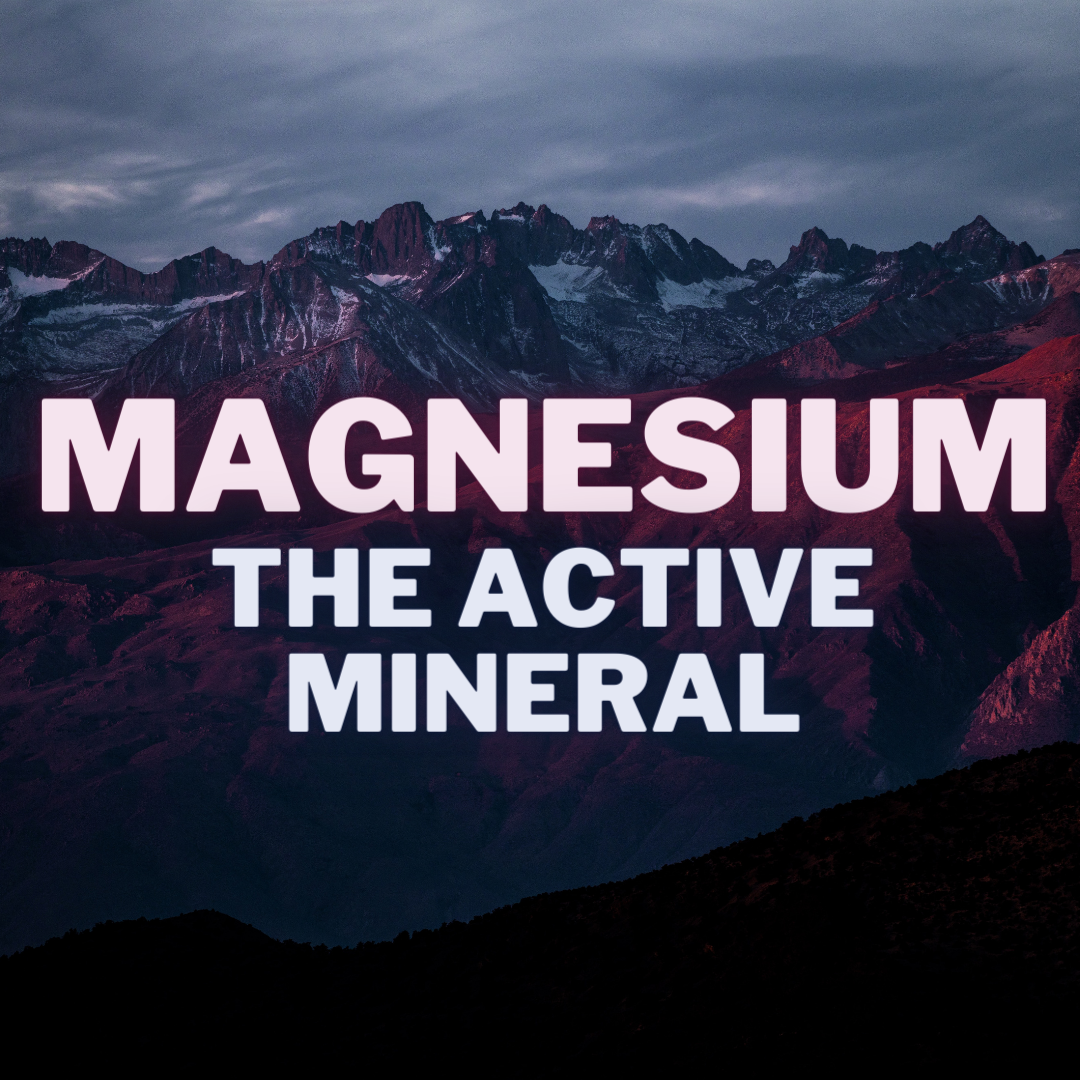
The Active Mineral
Magnesium is an essential mineral utilized by the body in hundreds of metabolic reactions. Some studies show up to 75% of adults do not meet the recommended daily intake and about 50% of the US population could be classified as deficient.
During exercise magnesium supports the efficiency of energy metabolism, cardiorespiratory function and muscular function. Requirements for magnesium can go up during exercise around 10-20%. It flows in and out of working muscle cells as they contract and relax and increases the availability of glucose in the blood, muscle, and brain. Exercise can cause you to loose magnesium through sweat along with other minerals. This is especially true in extended exertion, endurance events, or hot environments.
Magnesium has also been associated with proper brain function and its effects on mood and rest. Some studies have shown participants with the lowest levels of magnesium and magnesium intake were at the greatest risk for depression. It is also sometimes taken as a supplement at night for its ability to support calmness and relaxation. Individuals with low magnesium levels are reported too often experience restless sleep, sleep disturbances and insomnia.
Magnesium might also help support the cardiovascular system. In individuals with high blood pressure magnesium was shown to have a positive effect on both systolic and diastolic blood pressure levels. Higher magnesium intake was also associated with lower levels of inflammatory markers like c-reactive protein.
Magnesium can be found in everyday foods such as fatty fish, pumpkin seeds, dark chocolate, avocado, almonds, and spinach.
It is an essential mineral that is often overlooked that has major impacts on the body’s function and health.
-Fuel Your Path
These statements have not been evaluated by the Food and Drug Administration and are not intended to diagnose, treat, cure, or prevent any disease.
